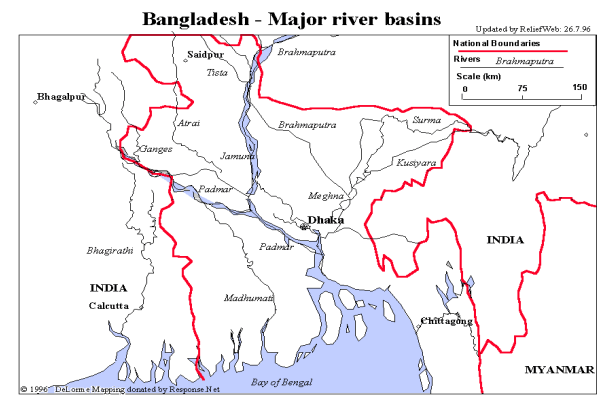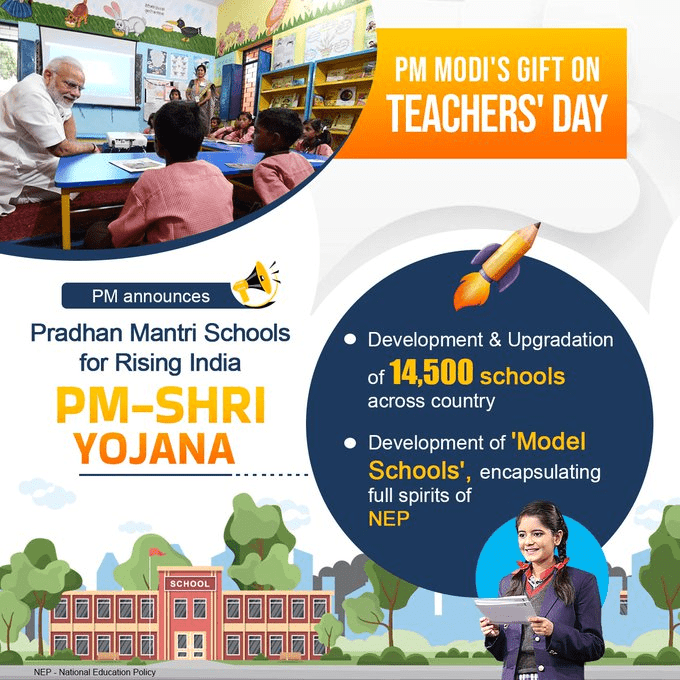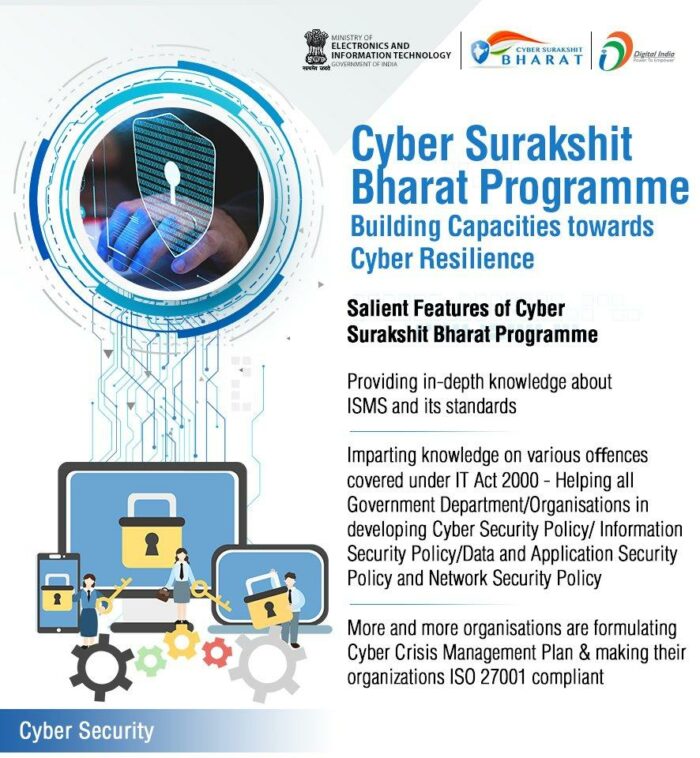Q 1. Which of the following is/are common rivers between India and Bangladesh?
- Meghna
- Feni
- Teesta
Select the correct answer using the codes given below:
A. 1 and 2 only
B. 2 and 3 only
C. 1 and 3 only
D. 1, 2 and 3
Answer: (D)
On the occasion of, Sheikh Hasina’s much-anticipated visit to India, countries are expected to sign at least one major river agreement.
Option (D) is correct: There are more than 300 rivers in Bangladesh of which 57 are transboundary rivers. Out of the 57 transboundary rivers, 54 are common with India and remaining 3 with Myanmar.
- The Ganges, the Brahmaputra and the Meghna River systems drain a total catchment area of about 1.72 million sq km through Bangladesh into the Bay of Bengal. Out of this massive catchment area, barely 7 per cent lies in Bangladesh.
- The Feni, which flows 135 km south of Tripura’s capital Agartala, has been in dispute since 1934. In a total catchment area of 1,147 square km of the river, 535 square km falls in India and the rest in Bangladesh.
The Teesta, which begins its journey in Sikkim, flows through north Bengal before entering Bangladesh.

Q 2. Cyber Surakshit Bharat initiative was launched by which of the following ministries?
A. Ministry of Electronics and Information Technology
B. Ministry of Communications
C. Ministry of Information and Broadcasting
D. Ministry of Science and Technology
Answer: (A)
Recently, the National e-Governance Division (NeGD), organised the 30th Chief Information Security Officers (CISO) Deep-Dive training programme at the Indian Institute of Public Administration (IIPA), New Delhi.
Option (A) is correct: Cyber Surakshit Bharat initiative was conceptualized with the mission to spread awareness about cybercrime and build capacities of Chief Information Security Officers (CISOs) and frontline IT officials, across all government departments. It was launched in 2018 by the Ministry of Electronics and Information Technology (MeitY). The CISO training is the first-of-its-kind partnership between the Government and industry consortium under Public Private Partnership (PPP) mode.
Q 3. Which of the following statement is correct about Dr Sarvepalli Radhakrishnan?
- He served as the second President of India from 1962 to 1967.
- In 1984, he was posthumously (after death) awarded the Bharat Ratan.
Select the correct answer using the codes given below:
A. 1 only
B. 2 only
C. Both 1 and 2
D. Neither I nor 2
Answer: (A)
Teachers’ Day is celebrated every year, since 1962, on September 5, to recognise and celebrate the works of educators including teachers, researchers and professors in India. After Dr Sarvepalli Radhakrishnan took charge as the President of India in 1962, some students sought permission from him to celebrate his birthday. Dr Radhakrishnan, however, did not approve any fancy celebration but rather requested that the day be observed as Teachers’ Day.
Option (A) is correct: Dr Sarvepalli Radhakrishnan was born into a Telugu family in Tiruttani town of Tamil Nadu, on September 5, 1888. He studied philosophy at the Christian College, Madras. After completing his degree, he became a Professor of Philosophy at Madras Presidency College and then subsequently Professor of Philosophy at the University of Mysore.
- He served as the first Vice-President of India from 1952 to 1962 and the second President of India from 1962 to 1967. (Statement 1 is correct)
- He was also the Ambassador of India to the Soviet Union from 1949 to 1952.
- He also served as the fourth Vice-Chancellor of Banaras Hindu University from 1939 to 1948.
- In 1954, he was awarded the Bharat Ratan. (Statement 2 is incorrect)
- Since 1962, his birthday on 5 September is observed as “Teachers’ Day” in India
Q 4. With reference to the Pradhan Mantri Schools for Rising India (PM-SHRI) Yojana, consider the following statements:
- It is a centrally sponsored scheme for the upgradation and development of more than 14500 Schools across the country.
- It aims at strengthening the selected existing schools from amongst schools managed only by the Central Government
Which of the statements given above is/are correct?
A. 1 only
B. 2 only
C. Both 1 and 2
D. Neither I nor 2
Answer: (A)
On the occasion of Teacher’s Day 2022, the Prime Minister of India announced a new initiative – PM SHRI Schools (PM ScHools for Rising India). It will be a laboratory for the new National Education Policy (NEP) and under the first phase, 14,500 schools will be upgraded.
Statement 1 is correct: It is a centrally sponsored scheme for the upgradation and development of more than 14500 Schools across the country. It will showcase all components of the National Education Policy 2020 and act as an exemplar school and also offer mentorship to other schools in its vicinity.
Statement 2 is not correct: It aims at strengthening the selected existing schools from amongst schools managed by Central Government/ State/ UT Government/ local bodies. These schools will be equipped with modern infrastructure including labs, smart classrooms, libraries, sports equipment, art room etc. which is inclusive and accessible.

Q 5. Which among the following freedom fighter and politicians, founded an indigenous Indian shipping service (Swadeshi Steam Navigation Company) that plied between Tuticorin and Colombo.
A. V. O. Chidambaram Pillai
B. Subramania Bharati
C. Subramaniya Siva
D. Vanchinathan
Answer: (A)
Recently, the Prime Minister paid tribute to V. O. Chidambaram Pillai, the legendary freedom fighter on his 151st birth anniversary on 5th September 2022.
Option (A) is correct: The Swadeshi Steam Navigation Company (SSNC) was one of the first indigenous Indian shipping companies set up during the Indian independence movement. It was started in 1906 by V. O. Chidambaram Pillai to compete against the monopoly of the British India Steam Navigation Company (BISNC). He was popularly known as Kappalottiya Tamilan (The Tamil Helmsman) and Sekkizuththa Semmal (scholarly gentry who suffered at the oil press). He established many institutions like Swadeshi Prachar Sabha, Dharmasanga Nesavu Salai, National Godown, Madras Agro-Industrial Society Ltd and Desabimana Sangam.
 Profile
Profile Settings
Settings Refer your friends
Refer your friends Sign out
Sign out





